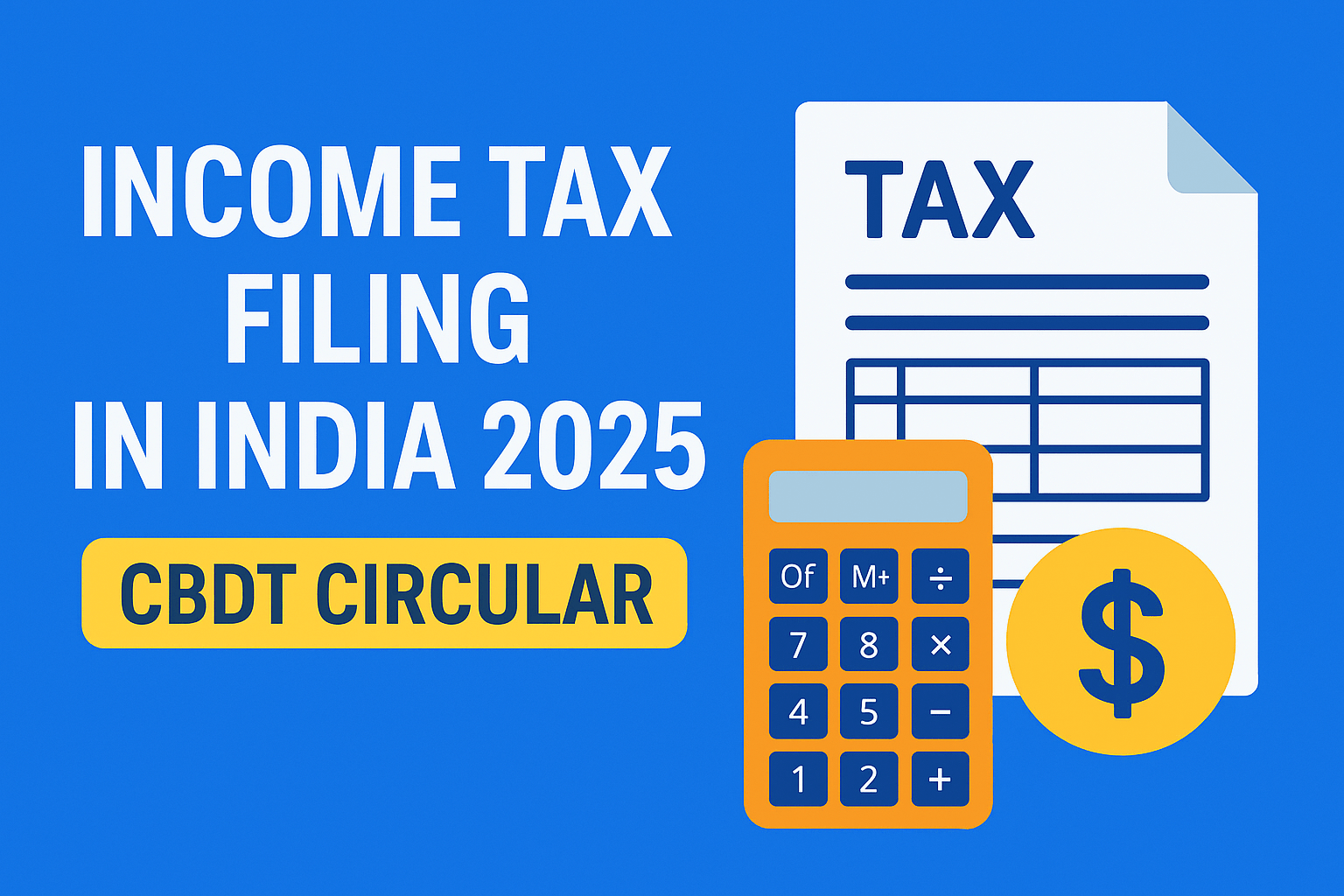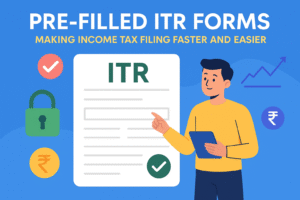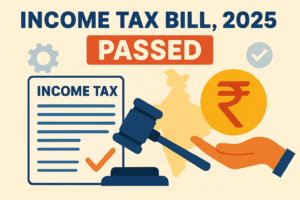Published on: August 9, 2025
Category: Income Tax, Finance News, Tax Compliance
📢 Introduction
The Central Board of Direct Taxes (CBDT) has recently issued a clarification that impacts how Indian residents must file their Income Tax Returns (ITR) for the current assessment year. This update aims to remove confusion regarding residency status, disclosure requirements, and reporting of overseas income/assets.
If you are an Indian resident for tax purposes, this update is critical to ensure compliance and avoid penalties.
📝 Key Highlights of the CBDT Circular
The CBDT notification addresses multiple points relevant to taxpayers, chartered accountants, and businesses. Below are the main highlights:
| Key Area | CBDT Clarification |
|---|---|
| Residency Status | Taxpayers will be treated as resident and ordinarily resident (ROR) if they meet the income and stay criteria under the Income-tax Act, 1961. |
| Foreign Income Reporting | Residents must disclose all foreign income and assets, even if earned outside India. |
| ITR Form Applicability | ITR-2 or ITR-3 forms must be used if foreign income/assets are involved. |
| Penalty for Non-Disclosure | Non-disclosure of foreign assets can attract a penalty under the Black Money (Undisclosed Foreign Income and Assets) and Imposition of Tax Act, 2015. |
| NRI Clarification | NRIs with no taxable income in India are not required to file ITR unless they earn income from India. |
🔍 Who Is Affected by This Change?
This circular applies to:
- Resident Indian taxpayers with global income or overseas assets.
- High-net-worth individuals investing abroad.
- Business owners with branches or income outside India.
- Professionals earning from overseas contracts.
SEO Keywords: income tax update 2025 India, CBDT circular on foreign income, ITR filing rules for Indian residents, Indian tax compliance news
📌 Understanding Residency for Tax Purposes
Your residency status determines whether your global income is taxable in India.
Basic Conditions (Section 6 of the Income-tax Act, 1961):
- Stay in India for 182 days or more in a financial year; OR
- Stay in India for 60 days or more in a year and 365 days or more in the preceding 4 years.
Additional Condition for ROR Status:
If you qualify as a Resident and Ordinarily Resident (ROR), your global income becomes taxable in India.
📊 Penalty Structure for Non-Compliance
| Violation | Penalty / Consequence |
|---|---|
| Failure to report foreign assets | ₹10 lakh penalty per year under the Black Money Act |
| Filing wrong ITR form | ITR deemed defective; possible penalty under Section 270A |
| Late filing of ITR | Late fee up to ₹5,000 under Section 234F |
| Misreporting foreign income | Penalty of 200% of the tax amount |
✅ Compliance Checklist for Taxpayers
Before filing your ITR this year, ensure:
- ✔ Verify Residency Status as per Section 6.
- ✔ Report Global Income if ROR.
- ✔ Use the correct ITR form (ITR-2 or ITR-3 for foreign income).
- ✔ Keep documentary proof of foreign assets/income.
- ✔ File before the due date to avoid penalties.
📌 Expert Opinion
“With global mobility on the rise, the CBDT’s clarification ensures taxpayers are aware of their compliance obligations. Ignorance can lead to hefty penalties, especially for those with overseas holdings.”
— Tax Consultant at Kuber Consultancy Services
📅 Final Word
This CBDT clarification is a wake-up call for Indian residents earning abroad. Whether you are a salaried employee, freelancer, or business owner, timely compliance is crucial. Filing your Income Tax Return accurately not only avoids penalties but also safeguards you during future financial audits.





